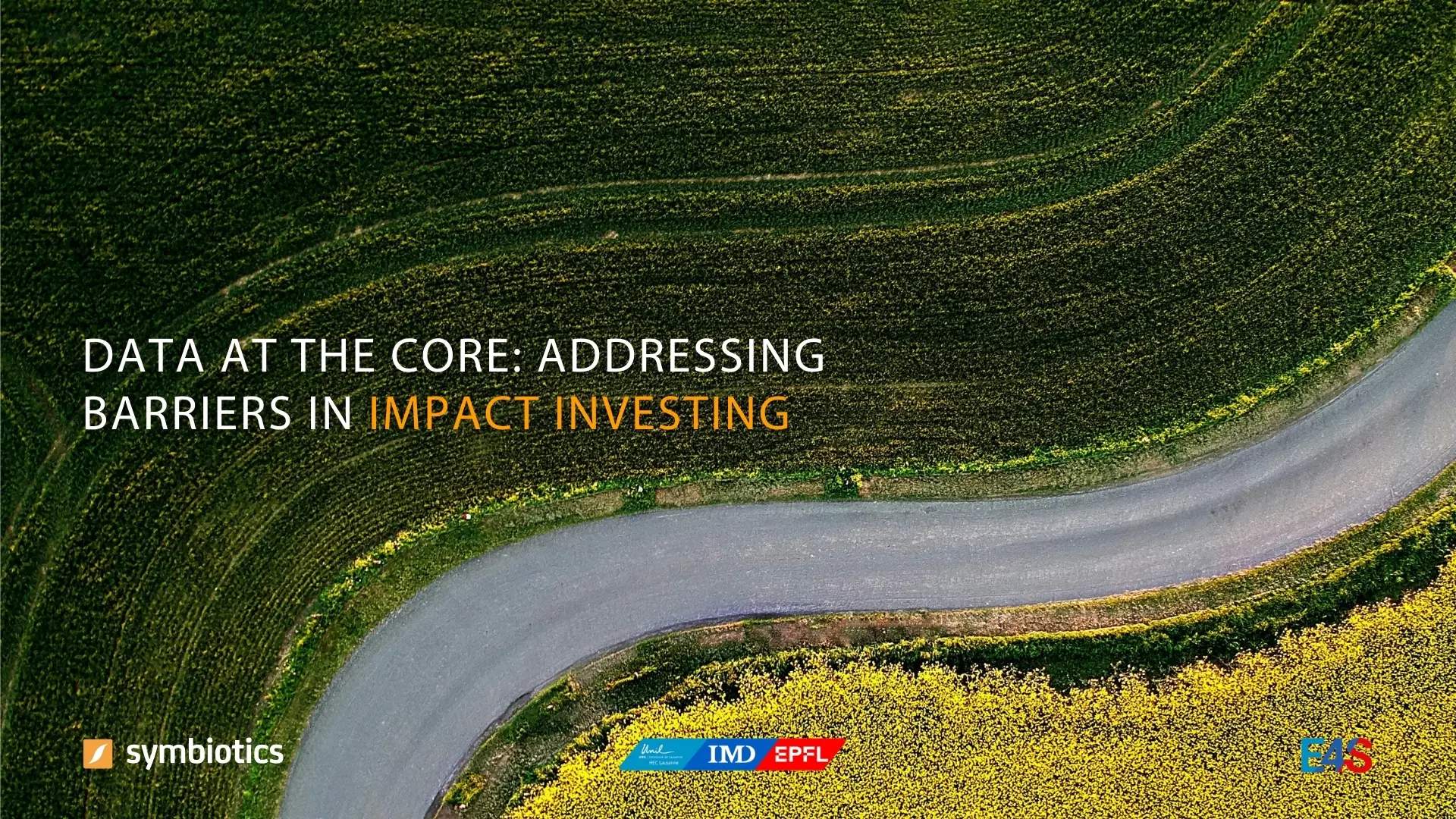
Symbiotics: Enhancing Access to Impact Investment
As part of their Master's degree in Sustainable Management and Technology, students work on a sustainability challenge provided by a company to propose new perspectives or solutions that can have the potential to transform an industry or societal practice.

Despite the remarkable growth of the global impact investing market, which reached USD 1.57 trillion in 2023, systemic barriers continue to limit its expansion to a size of less than one per cent of global financial markets. This project examined how Symbiotics, an impact investing pioneer managing over USD 10 billion in investments across 97 emerging and frontier economies, could strengthen its market leadership while addressing these industry-wide challenges. Through a comprehensive analysis of existing practices, ongoing initiatives, and future opportunities, the project identified data management as the cornerstone of value creation alongside four strategic focus areas: technological enhancement, information management optimization, product diversification, and refined marketing approaches. The findings suggest that by leveraging digital innovation, implementing sophisticated data-sharing networks, and expanding into new markets like renewable energies, Symbiotics is well-positioned to overcome barriers to scale while maintaining its commitment to driving meaningful social and environmental impact.
Symbiotics – Data at the Core: Addressing Barriers in Impact Investing
The global impact investing market has experienced remarkable growth, reaching USD 1.57 trillion in 2023. However, this progress represents less than 1%t of the global financial market, constrained by barriers to scale, including limited investment opportunities, the absence of standardized frameworks for impact measurement, and restricted exit options. These challenges hinder the flow of much-needed capital toward impactful investments.
Symbiotics, a pioneer in impact investing with over USD 10 billion in cumulative investments spanning 97 low- and middle-income economies, seeks to address these challenges while reinforcing its position as a market leader. As Symbiotics undergoes a restructuring phase, this transformative project aimed to identify strategic focus areas that align with the company’s core values of trust, transparency, and efficiency to tackle the barriers to scale.
To achieve this, the project adopted a three-layer framework designed to explore the central research question: What strategic focus areas can help Symbiotics overcome the barriers to scale in impact investing while maintaining its market-leading position? The framework involved:
1. Understanding and categorizing existing practices
2. Forecasting capacities based on ongoing initiatives, and
3. Proposing actionable strategic focus areas.
The analysis highlighted data management as a cornerstone of Symbiotics’ value creation. Effective data management not only drives operational efficiency and transparency but also fosters trust among investors and stakeholders, creating a solid foundation for overcoming industry challenges.
The project identified four broad focus areas to support Symbiotics’ objectives: enhancing technology, improving information management, diversifying product offerings, and refining sales and marketing strategies. For example, leveraging digital tools can modernize operations and improve liquidity, while fostering collaboration through data sharing networks can streamline decision-making. Expanding into renewable energy projects and adopting innovative storytelling techniques can further strengthen Symbiotics’ market position and appeal to stakeholders.
Students: Emily Sun Reed, Giammarco Bozzelli, Jakob Frühauf and Tim Bättig
Company’s supervisor: John Staehli from Symbiotics
Academic supervisor: Florence Hugard
Transformative Projects’ Lead: Samuel Wicki
